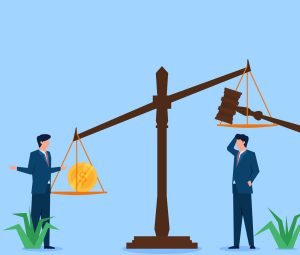i

Corruption is a form of unethical behavior that has plagued societies across the world. Eventually, It is a term that is commonly use to refer to the abuse of power, influence, or authority for personal gain. Corruption can occur in many forms, from bribery and fraud to embezzlement and nepotism, and can have a devastating impact on the economy, society, and democracy.
Corruption undermines the principles of transparency and accountability, which are essential for the proper functioning of any society. It creates an uneven playing field and leads to a breakdown of trust between citizens and their government. However, In countries where corruption is rampant; citizens have no choice but to bribe officials in order to access basic services, such as healthcare and education. This creates a cycle of corruption that is difficult to break.

Corruption also has a significant economic impact. It leads to a misallocation of resources, which can result in a decrease in economic growth and development. firstly, When resources are diverted towards corrupt activities, there is less money available for infrastructure development, healthcare, and education. This leads to a decline in the quality of life for citizens and an increase in poverty.
Corruption also has a negative impact on democracy. When officials are corrupt, they are more likely to be influenced by special interest groups.This can lead to policies that favor the rich and powerful at the expense of the poor and marginalized. moreover, It will also lead to the erosion of the rule of law, as officials who are involved in corrupt activities are less likely to respect the law.

To combat corruption, it is essential to have strong laws and institutions in place. In other words, this includes anti-corruption legislation, besides an independent judiciary, and law enforcement agencies. After that; Transparency and accountability are also important. Governments must be open about their activities and decisions. And citizens must have access to information that allows them to hold their officials accountable.

However, even with strong laws and institutions, corruption remains a difficult problem to solve., this is because corruption is often deeply embedded in the culture and social norms of a society. In many cases, it is view as a way of life. And those who engage in corrupt activities are not view as doing anything wrong.
Education and awareness-raising campaigns can help to change attitudes towards corruption. therefore, this can do through public campaigns highlighting corruption’s negative impact on society. It can also do through education programs in schools and universities, which teach students about the importance of ethics and integrity.
Certainly, another necessary approach is to increase the use of technology to reduce corruption. This can include the use of e-government systems, which allow citizens to access government services. This reduces the opportunities for bribery and increases transparency.

In conclusion, corruption is a major problem that affects societies across the world. It undermines transparency, accountability, and economic growth, and has a negative impact on democracy. To combat this, strong laws and institutions, transparency and accountability, education, and the use of technology are essential. However, while it is a difficult problem to solve, it is not impossible, and with the right approach. Similarly, it can reduce and eventually eliminate.




